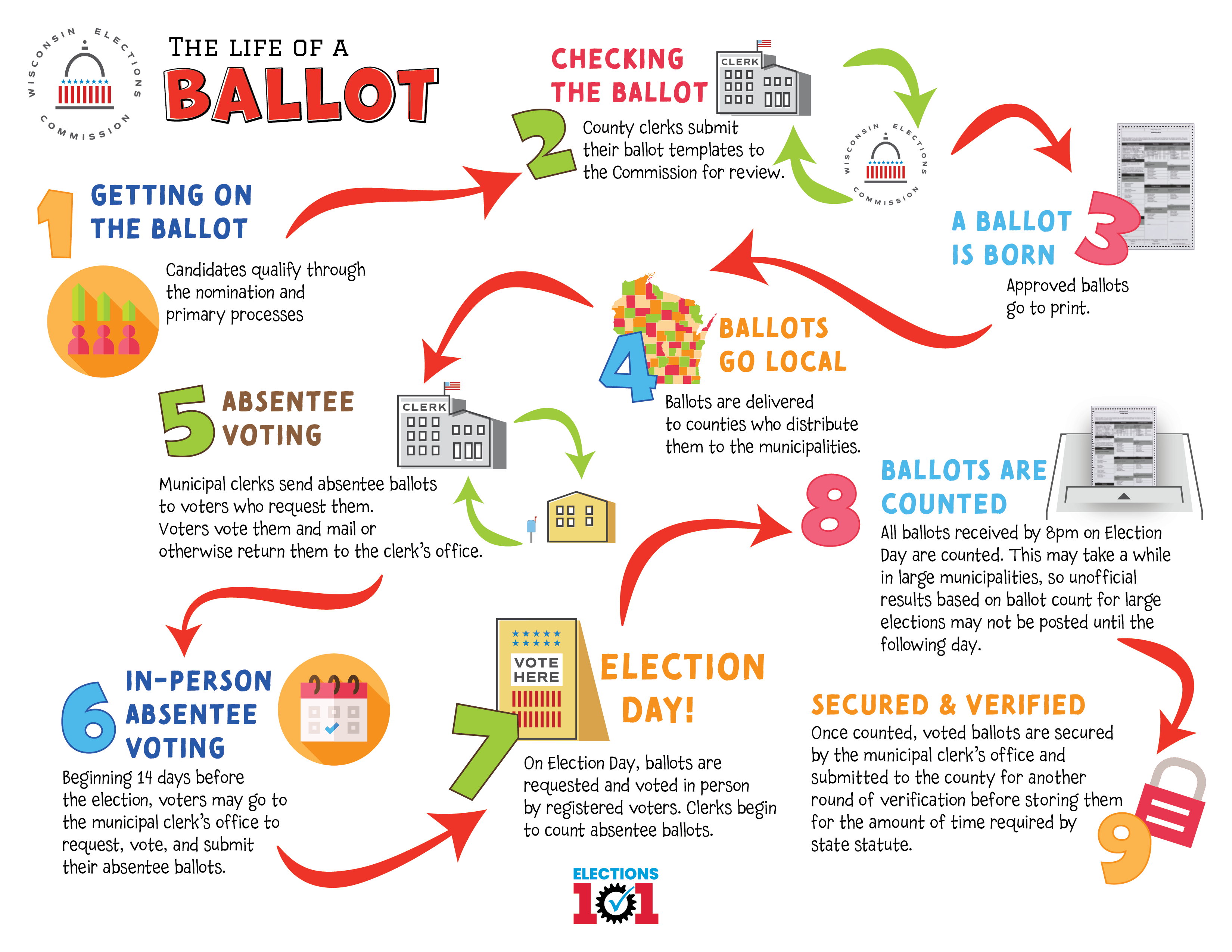Elections 101
Elections education is a key part of establishing election security and integrity. Elections 101 is a four-part video series that explains how elections are carried out in Wisconsin. The goal is to: a) create better awareness and understanding of how election administration works in our state and b) through that understanding, establish more trust in the process.
Each of the four videos is about 6 minutes long explores various aspects of elections administration in Wisconsin. The videos and accompanying lesson plans are intended to be used in high school classrooms as a part of civics education, and also are available to the general public here and in many other places.

Elections Overview
An overview of elections administration in Wisconsin, this introductory video touches briefly on a number of topics that will be explored in greater detail in subsequent videos.
Nuts and Bolts
In this video we explore the ins-and-outs of voter processes like registering to vote, requesting a ballot to vote absentee, and similar hands-on activities.
Voting Security
Let's take a look at how we maintain security and integrity with all of our elections, from voting machine testing and certification to maintaining an accurate voter registration database.
A Day at the Polls
From getting directions from the greeter to filling out a ballot and getting a sticker when you're done, see what it is like to go to the polls and vote!
Know a Student Who Wants to be a Poll Worker?
State law permits certain qualified high school and home-based private educational program students to work at the polls as an election inspector on Election Day.

